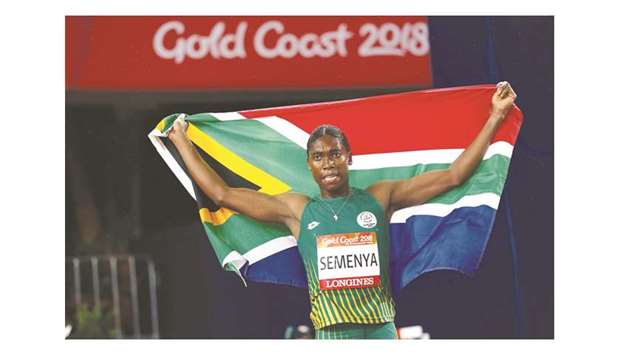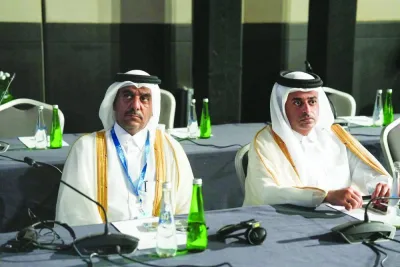The UN Human Rights Council has condemned the IAAF’s attempt to regulate the testosterone levels of female athletes, as nations unanimously backed the cause of South African runner Caster Semenya.
In a rare intrusion in the world of sport, the United Nations’ top rights body has said that the International Association of Athletics Federations (IAAF) may be in breach of “international human rights norms and standards”.
The South African-led resolution called on governments to ensure that sports organisations “refrain from developing and enforcing policies and practices that force, coerce or otherwise pressure women and girl athletes into undergoing unnecessary, humiliating and harmful medical procedures”.
It was adopted by consensus by the council’s 47 members on Thursday. The IAAF is looking to force so-called “hyperandrogenic” athletes or those with “differences of sexual development” (DSD) to seek treatment to lower their testosterone levels below a prescribed amount if they wish to continue competing as women.
World athletics’ governing body has argued the moves are necessary to create a “level playing field” for other female athletes. Double Olympic champion Semenya, who has dominated the women’s 800 metres over the last decade, has filed a challenge against the IAAF at the Court of Arbitration for Sport.
Her testosterone levels are not publically known. The sports court is due to deliver a decision in the case by the end of April. The council resolution also called on the UN High Commissioner for Human Rights, Michelle Bachelet, to write “a report on the intersections between race and gender discrimination in sports”, with particular focus on sport governing bodies like the IAAF.
South Africa’s ambassador to the UN in Geneva, Nozipho Joyce Mxakato-Diseko, said that what the IAAF was attempting amounted to discrimination on gender and “racial grounds”.
South Africa has previously accused the IAAF of seeking to violate women’s bodies. Some scientific experts have argued that barring Semenya from competition due to naturally high testosterone levels would be like excluding basketball players because they are too tall. Mxakato-Diseko compared it to excluding someone from a challenge that requires critical thinking because they had a high IQ.
Russian race walker to be
stripped of medals over doping
Russian race walker Aleksandr Ivanov has been disqualified for three years for doping and is set to be stripped of his gold medal at the 2013 world championships in Moscow, the Russian athletics federation said yesterday.
Ivanov will lose all the medals he won between June 2012 and August 2014, the federation said. He is disqualified for a three-year period that began on May 2, 2017, the date of his earlier suspension, it said.
Ivanov, whose blood contained abnormalities, according to the federation — won gold in the 20km race walk at the IAAF World Championships in 2013, beating China’s Ding Cheng and Spain’s Miguel Angel Lopez.
Russia’s athletics federation has been suspended since a 2015 report commissioned by the World Anti-Doping Agency (WADA) found evidence of state-sponsored doping in the sport. The IAAF global athletics ruling body has still authorised some Russians, including 2015 world champion hurdler Sergey Shubenkov, to compete as neutrals after having demonstrated they are competing in a doping-free environment.

..


